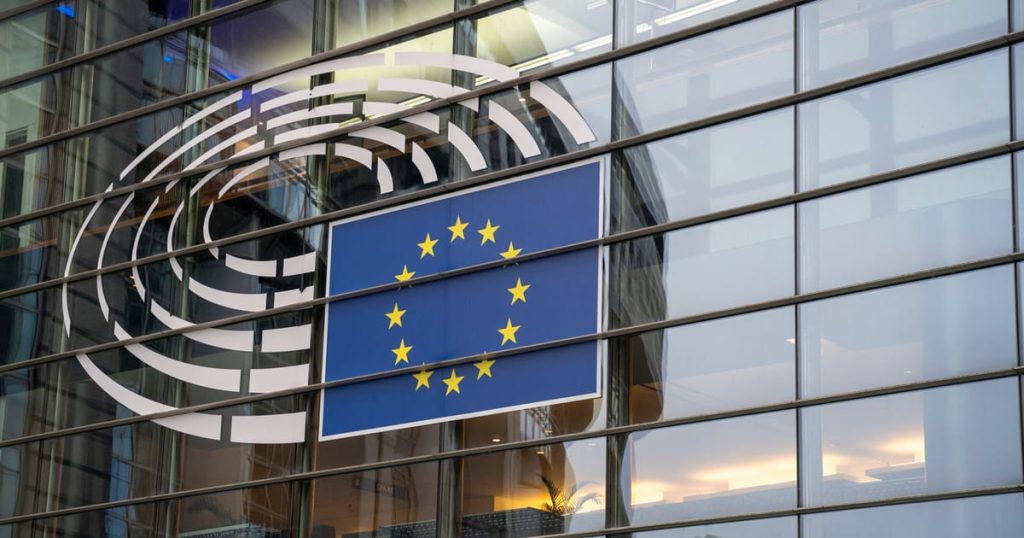The European Parliament is undergoing a period of introspection, grappling with ways to revitalize its plenary debates and boost attendance among its Members of the European Parliament (MEPs). A pilot program has been introduced, granting the session chair the power to select speakers on the spot after the initial round of interventions by group chairs. This move is aimed at incentivizing attendance, as MEPs wishing to speak must be present throughout the debate and monitor screens to see when they are called upon. This shift signifies a departure from the traditional, pre-arranged speaking order and injects an element of spontaneity into the proceedings. The underlying goal is to create a more dynamic and engaging environment, encouraging MEPs to remain actively involved throughout the session rather than simply delivering prepared remarks and departing.
The impetus for this pilot program stems from concerns regarding lackluster attendance and a perceived decline in the relevance and vibrancy of parliamentary debates. A group of 60 younger MEPs, eager to modernize the institution and enhance its effectiveness, have taken the lead in advocating for these reforms. They have presented a set of proposals aimed at addressing these issues, with the dynamic speaker selection process being a key component of their recommendations. This group represents a new generation of parliamentarians keen on injecting fresh energy and perspective into the often-criticized parliamentary processes. Their initiative underscores the growing desire within the Parliament to make its debates more compelling and reflective of the pressing issues facing the European Union.
The broader reform agenda championed by the younger MEPs encompasses a range of measures designed to inject more life and relevance into parliamentary debates. Beyond the dynamic speaker selection, they have proposed introducing mandatory attendance quotas for each political group, a move aimed at ensuring a more representative and engaged assembly. Furthermore, they advocate for encouraging spontaneous reactions to speeches, fostering a more interactive and responsive debate atmosphere. Another proposal involves allowing MEPs to occupy the front rows of the chamber, traditionally reserved for group leadership, symbolizing a more inclusive and egalitarian approach to parliamentary participation. These proposals collectively signal a desire to break away from rigid formalities and foster a more dynamic and engaging exchange of ideas.
The group’s strategy extends beyond formal proposals. They plan to leverage existing parliamentary mechanisms, such as the “Blue Card” system, which allows MEPs to pose impromptu questions to the speaker. By using this system strategically, the group aims to stimulate unscripted exchanges and create moments of genuine interaction, adding a spark of spontaneity to the often-predictable flow of debates. This tactic demonstrates a commitment to utilizing existing tools in creative ways to achieve their objectives of greater engagement and responsiveness. Their proactive approach signifies a determination to make their presence felt and actively contribute to shaping the parliamentary culture.
This latest effort to invigorate parliamentary debates builds upon past attempts to address similar concerns. Previous working groups, comprising MEPs and civil servants, have examined the issue and formulated recommendations. The current initiative, however, distinguishes itself by its focus on immediate, actionable steps, such as the pilot program for dynamic speaker selection. This emphasis on practical implementation suggests a growing recognition that past recommendations have not been sufficiently effective. The younger MEPs are pushing for tangible changes rather than mere theoretical discussions, reflecting a sense of urgency and a desire to see concrete improvements.
The underlying challenge faced by the European Parliament is maintaining the relevance and engagement of its plenary debates in a rapidly changing political landscape. The institution needs to adapt to the demands of a more dynamic and interconnected world, where information flows rapidly and public attention is increasingly fragmented. The push for greater attendance, liveliness, and relevance reflects a recognition of the need to modernize parliamentary procedures and make them more accessible and appealing to both MEPs and the wider European public. The success of these efforts will be crucial in ensuring that the European Parliament remains a vibrant and effective forum for democratic deliberation and decision-making.














